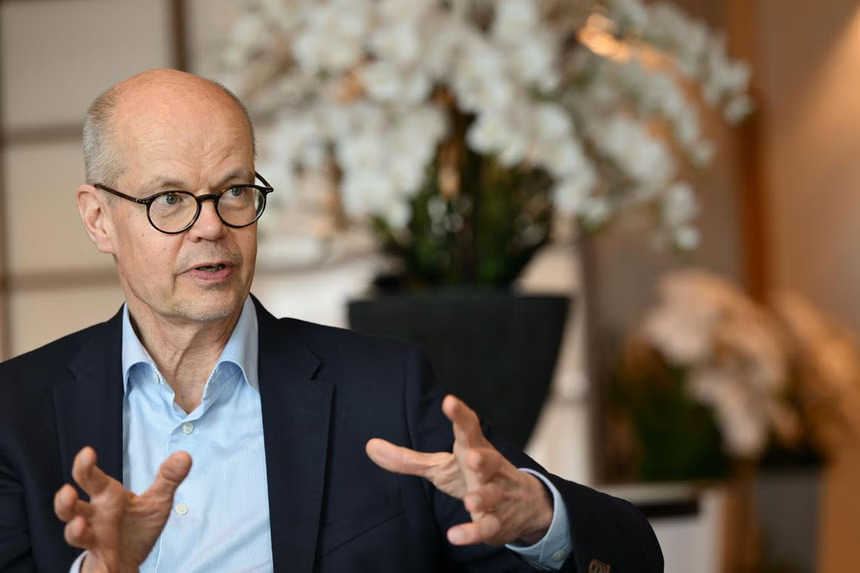International Baccalaureate pilots new subject on leadership with 4 schools, including 1 in S’pore

(Photo credit: ST Photo/Ng Sor Luan)
Source: The Straits Times
A new subject on leadership and problem-solving is being piloted in four schools worldwide by the Swiss-based International Baccalaureate (IB).
Singapore’s United World College of South East Asia is among them, with 54 students at the international school in Dover taking it up as part of their diploma programme since August 2024.
Titled “Systems Transformation: Leadership for Change”, the project-based course replaces two standard IB Diploma Programme (IBDP) subjects.
Instead of traditional exams, students are assessed through case studies, projects and portfolios, while tackling real-world challenges like sustainability and peace.
In an interview with The Straits Times on March 21, Mr Olli-Pekka Heinonen, director-general of the IB, said that if successful, the subject will be offered to all IB schools from 2030. This will be based on feedback from students, teachers, school leaders and universities, and whether the course is manageable for both schools and the IB to deliver.
Mr Heinonen was in Singapore earlier in March primarily to attend the annual IB Global Conference at the Suntec Singapore Convention and Exhibition Centre, which was attended by more than 1,600 participants, comprising mainly teachers and school leaders from 40 countries.
The IB holds three global conferences a year across the world. The last such event in Singapore was held in 2022.
Mr Heinonen said the new subject aims to connect the concepts of innovation and leadership.
“Questions of agency, motivation, purpose and identity are becoming more and more important. From the educational point of view, nurturing these elements means taking charge, and being the change that you want to see,” he said.
IB’s growth in Singapore
Founded in 1968, the IB now has more than 5,900 schools in more than 160 countries educating over two million students.
It has been operating in Singapore since 1977 and currently is offered in 41 schools here. This is slightly more than the 37 schools in 2020 and 31 schools in 2015.
The majority of the schools, or 36 of them, are international schools, whose students sit the IBDP exam in May.
Anglo-Chinese School (Independent) was the first national school to offer the IB in place of the A levels at the junior college level in 2005.
Now, four other national schools offer the IBDP – St Joseph’s Institution, School of the Arts, Singapore Sports School and Madrasah Aljunied Al-Islamiah. Students from these local schools sit the exam in November.
The IB diploma programme and the A levels are both two-year programmes that cater mainly to students aged between 16 and 18.
Compared with the A levels, IBDP students take a broader spread of subjects across various disciplines. The programme has six subject groups to choose from – studies in language and literature, language acquisition, individuals and societies, sciences, mathematics and the arts.
While A-level students are graded almost entirely on their final exams, in the IBDP they account for about 70 per cent to 80 per cent of the total marks for each subject.
Since May 2023, the IB has stopped releasing data on the number of students with perfect scores of 45.
Mr Heinonen said this is to discourage the use of assessment results for comparisons among students, schools or countries.
“We know that there is otherwise enough pressure with students. It’s also for the well-being of students… These comparisons can also hinder collaboration between schools because the competition is so harsh,” he said.
Singapore’s performance in the IB
Ever since it joined the IB programme in 2005, Singapore students have typically done well in the exam, consistently producing close to half of the perfect scorers worldwide, and surpassing the global average score.
Commenting on this, Mr Heinonen said that the nation’s stellar performance is not only a result of the work in schools, but also the society around it and what it values.
“I do see in Singapore, a long-term coherent development of the education system… Parents highly value the development of their children, and want to give them learning opportunities outside school.”
Calling himself an admirer of Singapore’s education system, Mr Heinonen said that he has been following developments here since he visited Singapore in 1996, when he was the minister of education in Finland.
“The education system here is adapting to the challenges and changes happening in the world in a very thoughtful, evidence-based and coherent way, while keeping a longer-term view also in mind,” he said, referring to the revised PSLE grading system, full subject-based banding and direct schools admission exercise.
